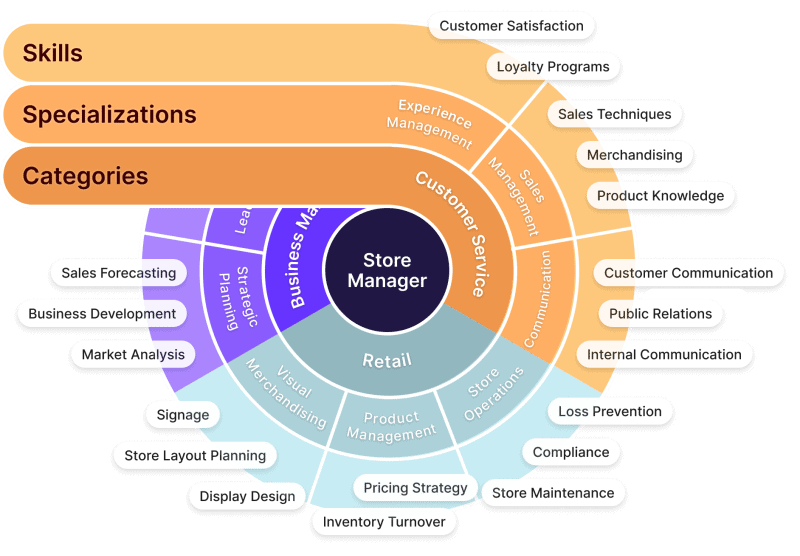As I am writing, the world is going through a period of economic uncertainty. I have a lot of friends running companies and selling software that are all battling with the same issue: finding customers and retaining the existing ones. We have also seen thousands of people being laid off by tech companies in the last 6-12 months. In the end, things will get better and this cycle will end too, but while you are in the storm, it’s always difficult to see (and believe) that. Why am I starting there? Because in these periods it’s easy for CEOs and entrepreneurs to focus 100% on revenues and costs, thinking that people will stick around because they don’t have alternatives. The reality is that – especially in these moments – companies can build a strong competitive advantage by investing in employee retention.
Today I want to talk about simple ways to start retaining your people, in a second part I will dive deep into the effect of it on your revenues.
Leveraging employee retention for competitive advantage
Developing your people takes years, not months. We are used to thinking of employees as people who do specific things in our business using their specialties. That’s just a small part of the story: when someone spends a few years working in your business, with your customers, and your domain, that person becomes a real expert and earns the ability to innovate and solve problems in your company because of that background. A great example is always sales: the person who has been selling your product for 4-5 years has a unique competitive advantage because he knows everything about it (value proposition, how it compares to competitors, what features attract your prospects) and with that, he has the type of confidence and problem-solving attitude that will always make him sell more. What he says and does inspires customers and they think of him as a partner to work with. You could apply the same example to a lot of other roles; sales is just one example, but the same happens with engineering, product, marketing, and so on. Most importantly: it happens at several levels, not just for executives or managers.
In times when things slow down, investing in retaining and developing your people is crucial because:
- You get the time to truly define a future for them in your business and let them acquire even more skills.
- Your competitors might decide not to do that, and they will pay the price once the markets rebound and their talent has left.
For your employees, it will be a great confirmation of the fact that they have picked the right company and that will change how they will consider future offers when the market comes back.
How to start retaining employees: set goals and milestones
The specifics of this approach will be different based on the size of your organization of course, but the approach and philosophy can be adapted and it will work no matter your company size. In my experience, the easiest way to build a retention program in your team is to start setting goals for your people. I am not talking about career goals, I am talking about specific and detailed things your people can focus on in a time frame of a few months to improve their skills: most people want to improve themselves and get feedback on what they need to do is always great. Now they have a focus and with the right guidance, they will keep pursuing them. Goals not only help people stay but also foster loyalty: I’ve had a lot of calls during my career where someone that I was trying to hire would tell me “It would be great to talk and consider your offer but right now I am working on this new project and I am learning quite a few things, so I am not really looking right now“. I might have offered a better salary or title but that person had a clear goal and focus and that was enough to stay there.
So if you start with goals for your team, and spend the right amount of time helping people achieve them, you will see them staying and being more committed. The next step is to start talking about milestones for their career. I talked about career paths here and that is probably the best and most structured approach for medium/large organizations, but you can set milestones even without that structure or tools. Every few months your team should have visibility in what’s next for them as a team (a new product? a new goal in terms of growth?) and what might be next for them individually. A milestone related to their career is something that needs to be discussed and directly influences retention. From time to time, your people will wonder what’s next for them, and opening that conversation will help you – as a manager – understand their needs and start defining a plan for that. Most managers don’t talk about this because they know they can’t offer anything to their people at the moment; doing so increases the risk of losing them. Even if your company is not hiring and your team doesn’t have open positions, you should talk about the next milestone for your people. It will give you the opportunity to clarify that it will not happen immediately but that you guys can start moving the first steps toward it, selecting skills and content to study or simply defining what that will be eventually.
Retention is a team effort, not something the HR team will magically create
It’s a common belief that retention belongs to the HR team inside an organization. It can definitely have a big role in it but in my experience, the companies that are really good at retaining their talent have a strong focus at the team and department level. Tech and engineering departments are among those teams that today spend a ton of time thinking about retention. Their skills and talent are highly competitive and building a strategy is vital. Managers need to be the ones thinking and implementing that strategy: I’ve seen C-levels succeeding at it by setting the right expectations with their managers, providing resources and money for it, but also giving them a strong vision about retention and upskilling.
Retention sounds like a buzzword until it damages your business
This happened to me. Back when we were 20-30 people I did not really think of retention, at 200+ people it was a key goal for specific areas of the company where my fear was to lose key people and a lot of knowledge related to our customers. My executive team knew that and we were constantly discussing it. Poor retention in some areas cost us months of development for key products and, therefore, millions in revenues that did not materialize in our fiscal year. We worked with great talent in the cloud space; their LinkedIn profiles were constantly bombarded by recruiters. It was honestly painful and I’ve learned a lesson there. Until then, retention felt like one of the many things large companies do, not something we deemed necessary.
In the next part of this article, I will talk about the effect of retention on your business, specifically on your revenues!
Stefano
September 27, 2023


